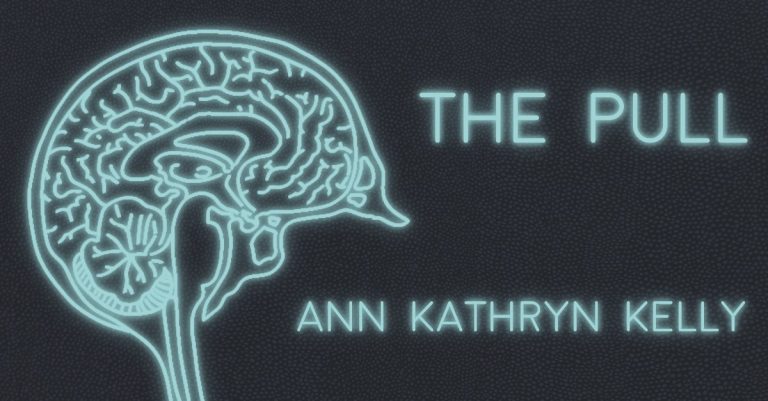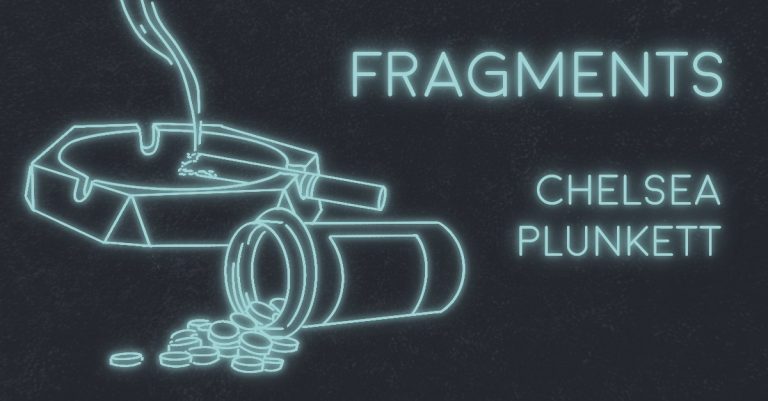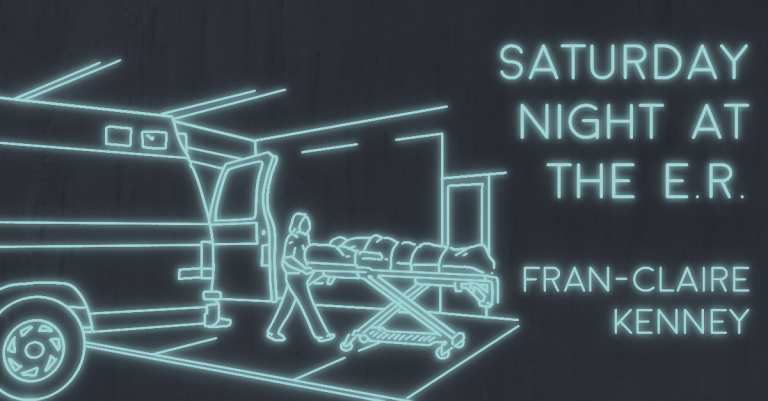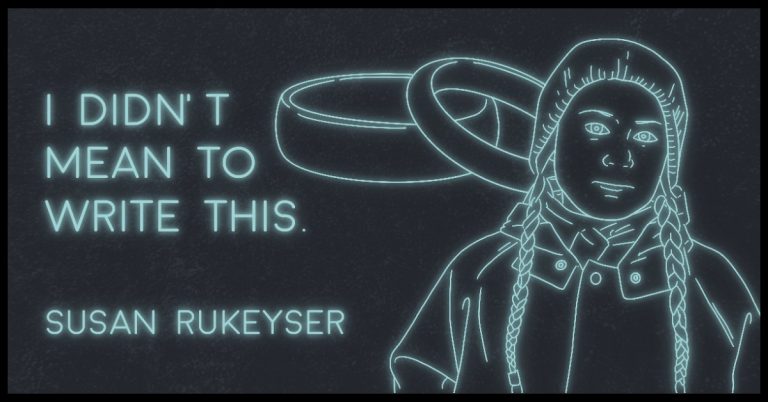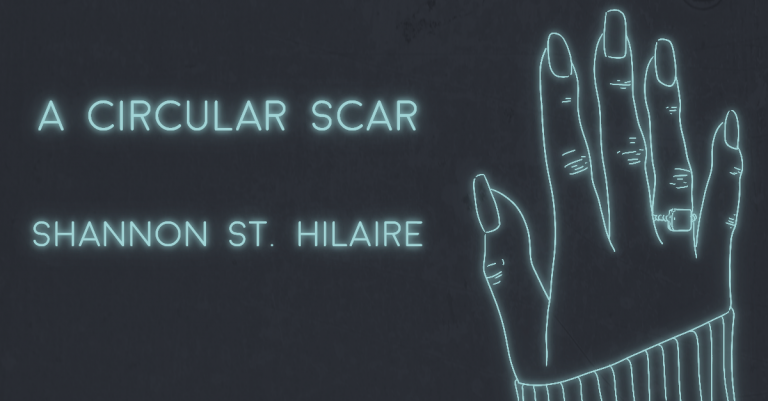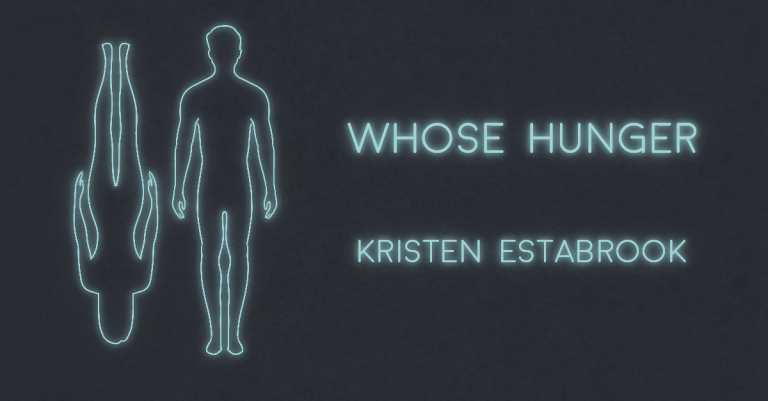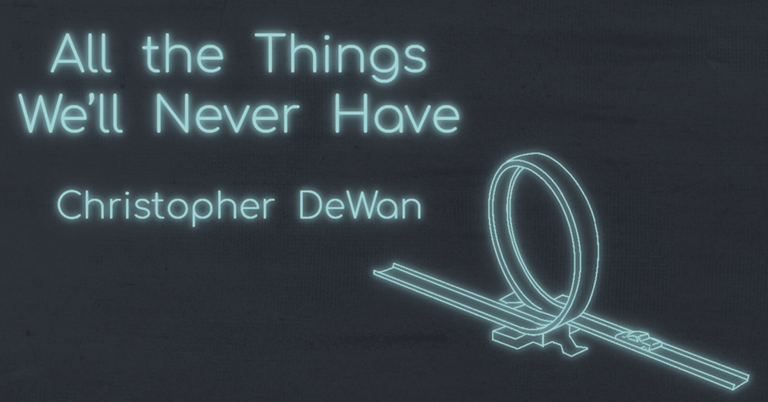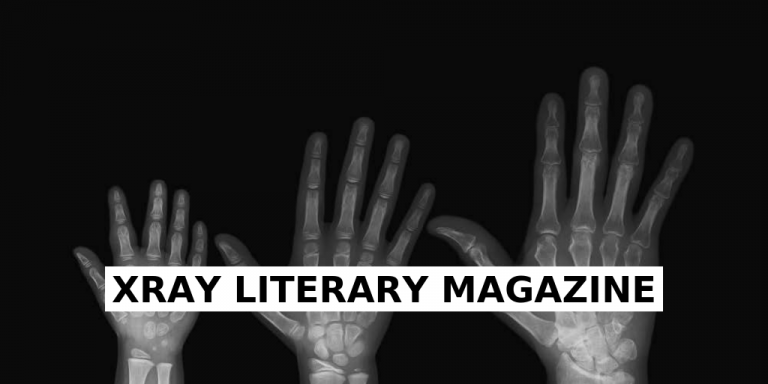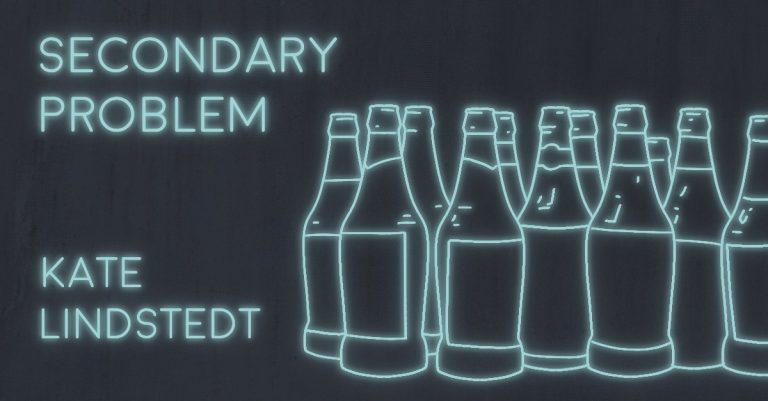
SECONDARY PROBLEM by Kate Lindstedt
Tell your mother you are going to see a movie. Ride with Hannah in her gold Honda Accord to the liquor store on Harrison, the one that doesn’t card. Watch the sun skirt behind clouds while she buys a handle of Malibu. Fling ping pong balls into cups of Tecate at Chloe Peralta’s house. Take shots of blue liquor until the night whirls in your stomach. Wake up crying on shag-carpeted stairs because out of everyone here you will be the last to find love. When your mom asks how the sleepover was, say it was fun.
***
Fly 2,586 miles. Believe the adults who say you’ll blossom soon. Share a cinderblock room on Washington Square with a girl from New Jersey named Meg. Turn 18 and dye your hair red. Duct tape a forty to your hand on Friday nights. Earn the nickname Ginger Lush. Black out in a French maid costume on Halloween and stop a boy from kissing you because you only want to be kissed if it’s meaningful. Overhear classmates laughing about the girl who wanted meaning. Drunkenly toast the Art History faculty on a January trip to Italy with the other smart kids. Cry, often, because you are not in bloom.
***
Flirt with ecstasy and Adderall in another cinderblock room at another college. Fall in love with pale ales and whiskey plus Xanax. Take as needed, or as not needed. Give an honest answer to the psychiatrist who asks how many nights you don’t remember. Ignore him when he says the exact number is not ideal. Listen to him when he says alcohol is not your primary problem. Spend years wondering what your primary problem is. Spend 36 hours in jail following work karaoke. Break up with the therapist who shared a pamphlet on binge drinking in the aftermath of your arrest. Return to her office four minutes later and tearfully proclaim that you’re too pure-hearted for New York City. Drink to alter the ratio of world to self. Fall in love with men who’ve explicitly stated they’d rather you not. Drink to forget your thin lips and flat chest and that you are not the only person who has ever felt alone.
***
Swap coasts, again. Cease to be a virgin two years later than the age you swore you’d kill yourself by if you were still a virgin. Hate and envy Instagram models in equal measure. Fall hard and fast for a comedian who says you have sparkly eyes. Cut yourself and take 10 pills of Xanax when he doesn’t text you back. Fail to prove a point. Wake up in a hospital and ask your mother how much your roommate Nicola, an aspiring actress, told her over the phone. Explain Instagram to crisis hotline volunteers. Drive after accruing a $90 bar tab at a bowling alley in Koreatown and notice an LAPD car directly behind you. Pull over in relief when he turns left onto Wilshire and disappears into the darkness of a Sunday night. Stare at the empty sidewalk and do not feel better about this, now or ever. Leave LA with a tarot reader’s blessing.
***
Buy a one-way ticket to Mexico City. Learn how to say menstrual cramps and anxiety in Spanish. Vomit on a stranger’s fur coat in a club. Delete Instagram. Call your brother and say you think life is overrated. Find life profoundly beautiful one day later. Do not sleep for 96 hours. Visit an English-speaking psychiatrist in Polanco. Switch meds. Think of the psychiatrist who once said alcohol was not your primary problem. Accept that the primary problem is at the intersection of mood and personality. Think of how that same psychiatrist mentioned a study in which the 28-year-old participants more closely resembled their 14-year-old selves than their 21-year-old ones. Think you know why so many people die at 27. Hike 15 miles in Guatemala to watch a volcano erupt through the night. Decide to take yourself seriously, maybe.
***
Fly 2,586 miles. Again. Find an apartment four subway stops deeper into Brooklyn than your last New York address. Drink like no one’s watching only when no one’s watching (which both is and is not growth). Drink through roommate drama for three months. Wait until the house is empty to put beer bottles in the recycling bin. Realize this is sad and you are tired. Believe your therapist when she says the twelve steps are different from what you’d expect—they’re not for everyone but they might be for you. Wait two weeks before walking into an East Village basement. Drink a margarita immediately after. Return three weeks later and cry when someone says, if you’re an apple, you can be the best apple possible, but you’ll never be an orange. Find comfort in Belle and Sebastian. Promise to keep coming back.
***
Call a crisis hotline for the first time in four years. Drink for the first time in 44 days. Identify the underlying logic: if a room is blurry enough you’ll stop searching for a door. Realize you didn’t stop cutting yourself so much as you replaced razor blades with IPAs and shots of whiskey—just like you’ve replaced IPAs and shots of whiskey with Cranberry LaCroix and American Spirits and, for whatever reason, listening to Billy Joel’s “Vienna” on repeat. Wonder if you’ll ever truly be free of anything and, if so, who you would be. Maybe who you were at 14? Tell a room full of strangers that you had two beers last night—only two. Acknowledge that you topped them off with a Klonopin and a half. Snap your fingers, try but fail to flip your short hair, and say, “Still got it.” Love that these people are laughing with and clapping for you. Hate that you love it. Try, as promised, to think and feel in 24-hour increments, just for today. Try tomorrow, too.

